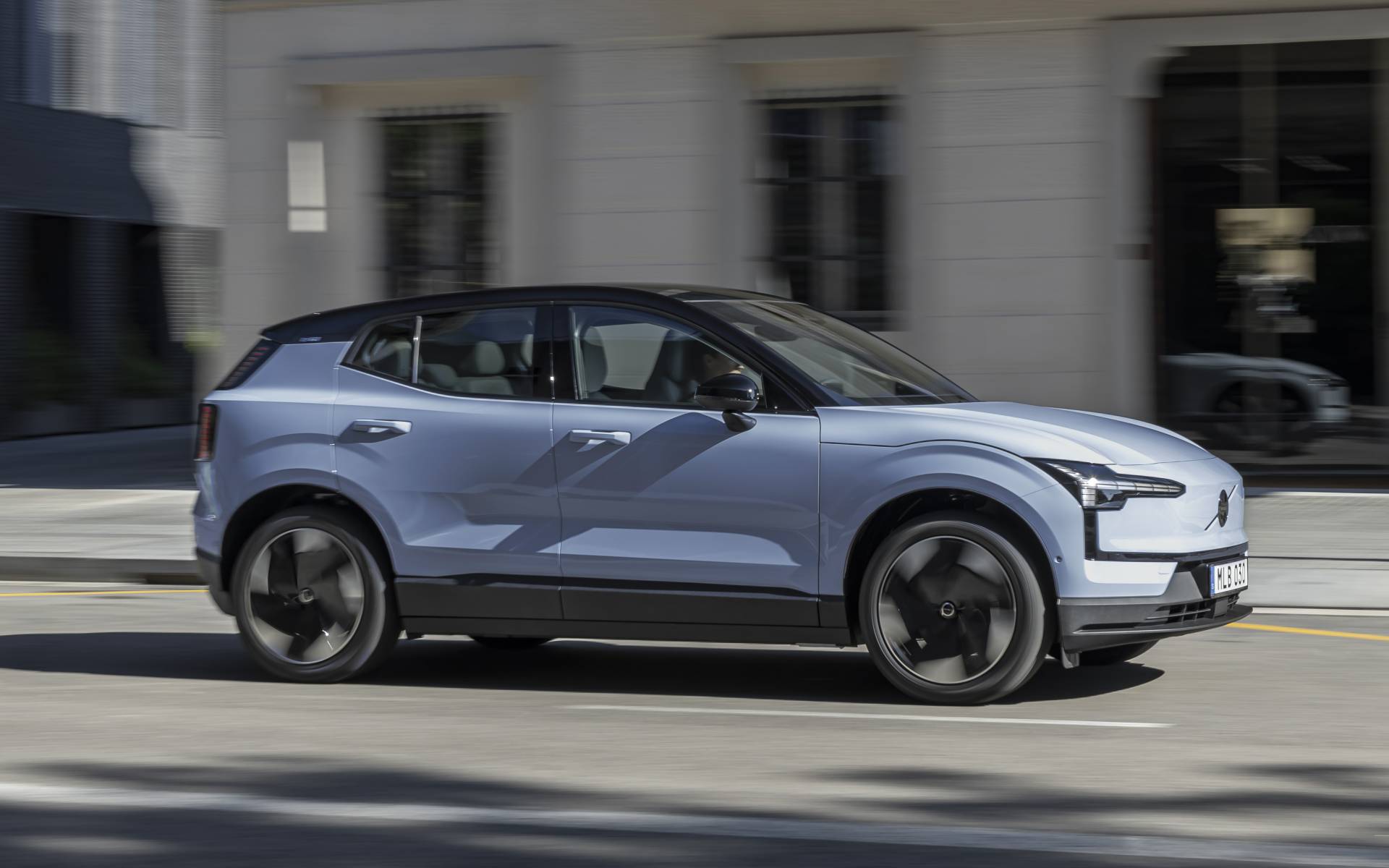Volvo Canada Clarifies EX30 Situation in Wake of Tariffs on Chinese-Made EVs
As we reported in late June, the launch of the all-new and highly promising Volvo EX30 electric crossover in the U.S. has been pushed back to 2025 in a response to the Biden administration’s decision to slap 100-percent tariffs on Chinese-made EVs.
U.S.-bound EX30s will have to be manufactured in Belgium, similar to the EX40 and EC40 (formerly known as XC40 Recharge and C40 Recharge), in order to be sold at more realistic prices. However, a delay is necessary as Volvo works to increase production capacity at its plant in Ghent. In the meantime, customers with existing preorders will be offered various options to drive a new Volvo until their EX30 arrives.
- Also: Volvo Confirms Several New Products Coming Within Next Two Years
- Also: Volvo Scraps Goal to be Fully Electric by 2030
What About Canada?
Following the lead of the U.S, not to mention Europe, the Canadian government confirmed in late August plans to implement a 100-percent surtax of its own on all Chinese-made EVs and hybrids effective October 1, 2024. This surtax will apply in addition to the import tariff of 6.1 percent that currently applies to EVs produced in China and imported into Canada.
Not only that, but Chinese-made electrified vehicles will no longer be eligible to purchase incentives since access to the federal government’s various programs will be restricted to products made in countries which have negotiated free-trade agreements with Canada.

When contacted by The Car Guide to clarify the EX30’s situation, Volvo Canada’s public relations manager Jennifer Okoeguale said that the company has already begun deliveries to customers in Canada and has enough supply to sustain demand through to the end of the year. Because they were imported before October 1, these units will not face the new tariffs and will not be denied the $5,000 federal rebate.
Once the supply runs dry, however, there will be a long pause since future Canadian-spec EX30s will also be built at the Belgian factory, starting sometime in the first half of 2025, Okoeguale said without being more specific. Volumes will ramp up in the second half of the year.

Great Power and Range for the Price
Using a single electric motor rated at 268 horsepower and 253 lb-ft. of torque, the rear-wheel-drive EX30 delivers satisfying power given its diminutive size and weight. What’s more, the 69kWh battery is said to average 15.7 kWh/100 km, resulting in a range of 414 or 420 km depending on wheel size. Pricing starts at just $53,700 (MSRP). Plus and Ultra models can be had from $56,900 and $59,100, respectively.
Then there is the dual-motor EX30 with all-wheel drive. This one generates as much as 422 horsepower and 400 lb-ft. of torque. Maximum range drops to an estimated 402 km, but that’s still an attractive figure. You can only have it in Plus or Ultra trim, with a base price of $59,900 or $62,100, respectively.
All EX30 models are eligible to a $5,000 EV rebate under the Canadian government’s iZEV program in addition to provincial incentives of up to $7,000 where applicable.












